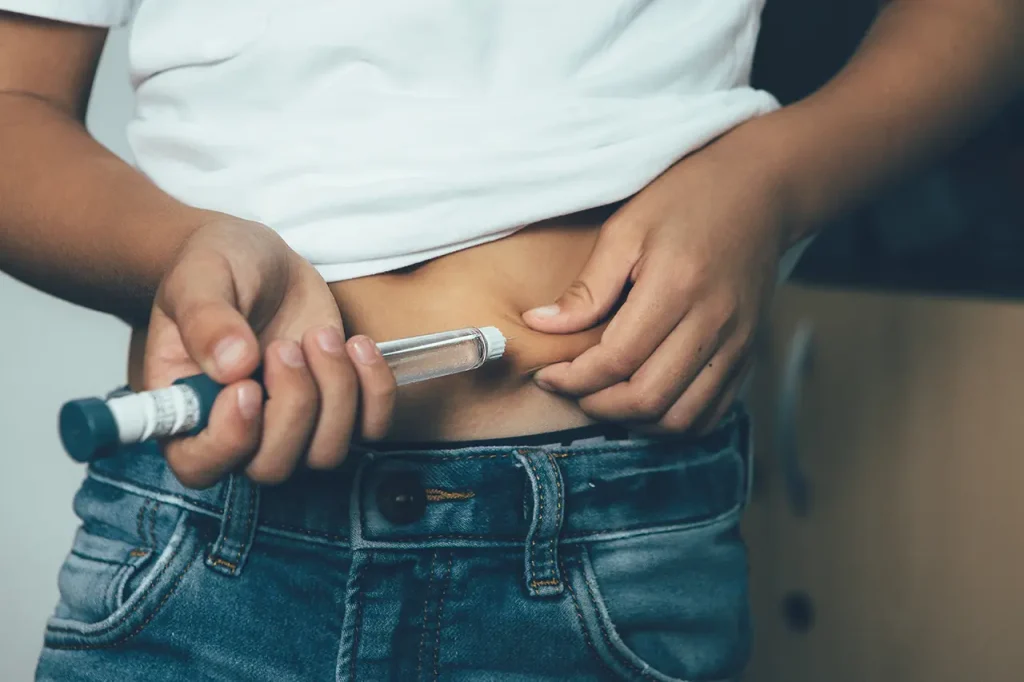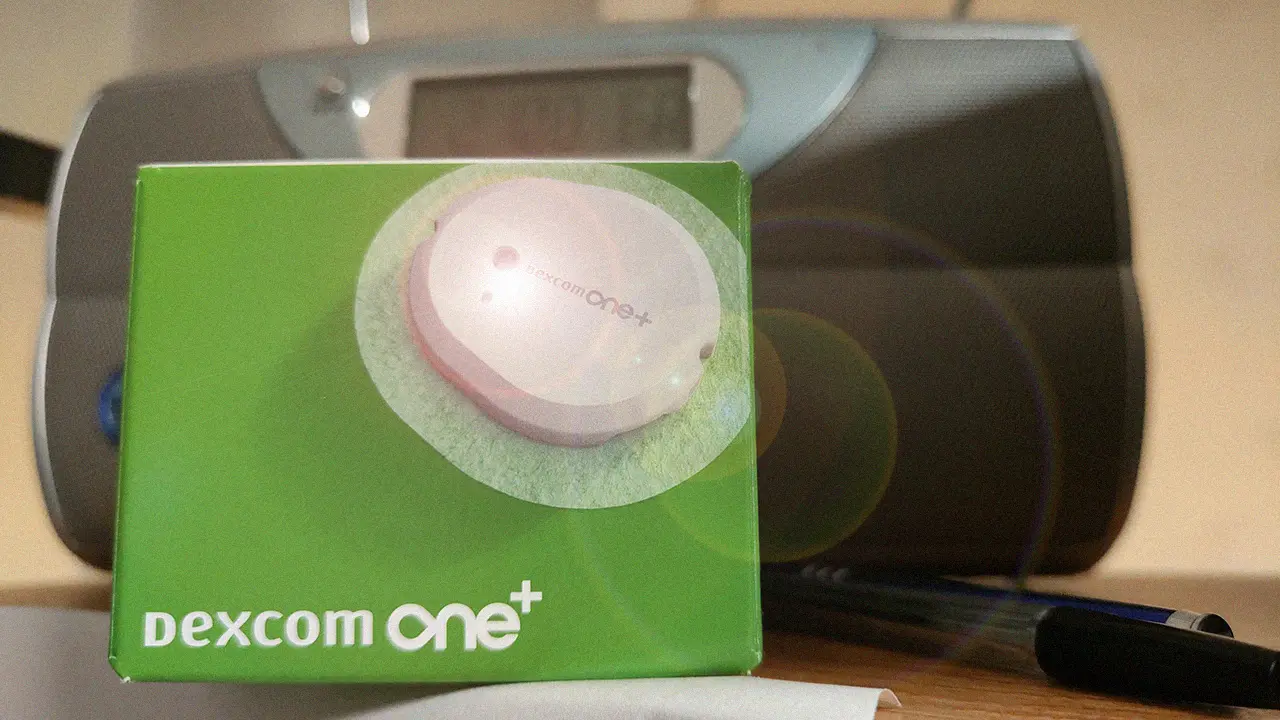A year-long phase 3 clinical trial suggests that insulin given once a week to treat type 1 diabetes is potentially as effective as daily injections.
In a similar phase 3 study, researchers compared the efficacy of icodec insulin administered once a week and once a day in the treatment of type 2 diabetes.
They found that icodec injections given once a week were more effective in lowering blood sugar levels than standard injections given once a day.
Researchers say that once-weekly insulin injections could revolutionize diabetes treatment.
The new once-weekly insulin could prove to be a breakthrough for diabetics, according to clinical trials.
A recent phase 3 clinical trial, ONWARDS 6, compared the efficacy and safety of administering insulin icodec once a week with administering insulin degludec once a day in adults with type 1 diabetes. Degludec is a long-acting insulin drug that helps regulate blood sugar levels.
The results of the year-long study, published Oct. 17 in The LancetTrusted Source, indicate that insulin treatment once a week can work just as well as daily injections.
In another phase 3 clinical trial, ONWARDS 3, researchers compared the efficacy and safety of icodec insulin administration once a week with the standard degludec injection once a day in the treatment of type 2 diabetes.
They found that administering insulin icodec once a week resulted in greater reductions in blood sugar levels than administering insulin degludec once a day after 26 weeks. The results of this study were published in June in JAMATrusted Source.
What’s more, an earlier study published in March 2021 found that icodec injections have similar glucose-lowering effects to daily insulin injections.
Is insulin given once a week more effective in treating diabetes?
They measured blood glucose levels at week 26, compared them to baseline values, and observed a slight reduction in hemoglobin A1c (HBA1c) levels in both groups.
HBA1c measures average blood sugar levels over the past three months. People without diabetes usually have HBA1c values below 5.7%, but people with diabetes are advised to maintain levels of 6.5% or lower.
In participants who took icodec, HBA1c levels dropped from an average of 7.59% at the start of the study to 7.15%. The group taking degludec decreased from 7.63% to 7.10%.
The researchers estimated that the difference between the two therapies was 0.05%, confirming that icodec is not inferior to degludec and has a “significantly reduced injection rate” for treating type 1 diabetes.
For the ONWARDS 3 study, the researchers recruited 588 people with a mean age of 58 from 11 countries, including the US, Argentina and China. All participants were treated with glucose-lowering drugs other than insulin, and just over a third were women.
During the study, they were randomly assigned to receive one of the following treatment regimens for 26 weeks:
- Once a week icodec and once a day placebo,
- Once a day degludec and once a week placebo.
Finally, the researchers found that icodec lowered hemoglobin A1c (HBA1c) levels to a greater extent than degludec.
After 26 weeks, HBA1c levels among participants in the icodec group dropped from 8.6% to 7% on average. Meanwhile, HBA1c levels in the degludec group dropped from 8.5% to 7.2% on average.
The researchers noted that fasting glucose levels and body weight were not significantly different between participants taking icodec and degludec.
What are the side effects of icodec insulin given once a week?
In ONWARDS 6, researchers reported 39 serious adverse events in 24 participants (8%) who took icodec and 25 adverse events in 20 participants (7%) who took degludec.
One participant died, but researchers say the death was probably not related to the treatment.
In both clinical trials, adverse events included clinically significant or severe hypoglycemia – when blood sugar levels are below the standard range.
Researchers involved in the ONWARDS 3 study noted that from the start of the study to week 31, 8.9% of participants in the icodec group and 5.8% of participants taking degludec experienced hypoglycemia.
In addition, over the course of the study, 177 (60.4%) patients in the icodec group and 167 (56.8%) of those receiving degludec experienced adverse events. The researchers wrote that 60 events in the icodec group and 46 in the degludec group were likely related to insulin treatment.
However, they noted that most of the events were mild and included COVID-19, influenza and diabetic retinopathy, an eye disease that can cause vision loss in patients with diabetes.
While 5.1% of patients in the icodec group versus 2% of patients taking degludec developed diabetic retinopathy, they noted that the absolute numerical difference was small, and the observed differences had not been noted in previous icodec studies.
More research still needed on once-a-week injections
Researchers involved in both Phase 3 clinical trials noted the limitations of their studies.
In the ONWARDS 6 study, researchers cited the study’s open-ended design and the use of self-monitoring of blood sugar levels as limitations that carry a potential risk of bias.
“Our results are very promising, but further analysis of data from continuous glucose monitoring and real-world studies is needed.” – said Prof.
The researchers also point to the exclusion of comorbidities or subjects’ lack of awareness of existing hypoglycemia as further limitations that may limit the results to broader type 1 diabetes populations.
Researchers of the ONWARDS 3 study noted that the 26-week duration of the study means that the long-term effects remain unknown.
Like the ONWARD 6 study, the ONWARDS 3 study did not collect continuous glucose monitoring or patient-reported outcome data.
“Although icodec proved to be slightly better at lowering HBA1c, it also showed more hypoglycemia.” – Dr. Gutierrez noted. “This was to be expected, since it cannot be titrated as often. In addition, based on the study design, the titration of degludec was not optimal.”
Source: https://www.medicalnewstoday.com/articles/once-weekly-insulin-icodec-injections-diabetes
Translated from www.DeepL.com/Translator (free version)
How useful was this post?
Click on a star to rate it!
Average rating / 5. Vote count:
No votes so far! Be the first to rate this post.








